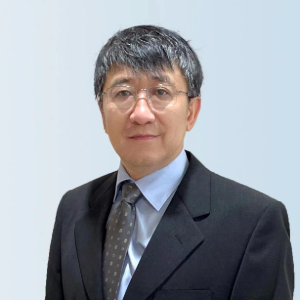Events
Feb 24, 2025
Seminar (2025-02-24)
School of Biomedical Sciences cordially invites you to join the following seminar:
Speaker: Professor Ying Xu, Chair Professor, School of Medicine, Southern University of Science and Technology, China
Talk Title: Disease biology research may need a new theoretical framework
Date: 24 February 2025 (Monday)
Time: 4:00 pm – 5:00 pm
Venue: Seminar Room 3, G/F, Laboratory Block, 21 Sassoon Road
Host: Professor Stephanie Ma
Biography

Ying Xu is a Chair Professor in the School of Medicine, Southern University of Science and Technology, China since January 2023. He is also a Cheungkong Scholar Chair Professor (since 2008) and Qianren Chair Professor (since 2012). Before that, he was a Regent Professor and the Georgia Research Alliance Eminent Scholar Chair in the Department of Biochemistry and Molecular Biology (2003 – 2022/12) and the Founding Director of the Institute of Bioinformatics, the University of Georgia, USA (2003-2011). He is an AAAS Fellow and an IEEE Fellow. He has been a computational biologist since 1993 when he joined the Oak Ridge National Laboratory to take part in the Human Genome Project, where he worked for ten years and moved up the career ladder from a research associate to a senior staff scientist and group leader. He has published over 400 research papers and five books, including the world's first monograph “Cancer Bioinformatics”. His H-Index is 73 with more than 21000 citations in scholar.google. He received his Ph.D. in theoretical computer science from the University of Colorado in 1991 and earlier degrees from Jilin University, China.
Abstract
Chronical diseases, such as cancer, Alzheimer’s disease, and diabetes, have considerable changes in their cellular chemical conditions like the pH, which result in changes in the cellular physical conditions, such as the membrane potential and the intracellular polarity. These changes can result in persistent and severe stresses. For survival, the affected cells start extensive metabolic reprograming (MR) at a systems level, enabled by genomic mutations and altered epigenetics. To elucidate the operating logic of each disease type, we may need to have a new research framework, which requires, at least, studies of biology at the basic chemistry level. In this presentation, I will use our cancer research as an example to illustrate how we have studied basic cancer biology problems at the chemistry level, resulting in fundamentally novel insights about cancerous transformation from chronically inflammatory diseases, key drivers for cancer progression, and the unique biology of metastasized cancers.
ALL ARE WELCOME.

